Assumptions: debugging a Windows DLL on Windows using a pure Dart test harness. It should work pretty much the same for a Flutter test harness (i.e. the example app in a Flutter plugin project), but in all likelihood you'll want to do much of the testing in as simple a test environment as you can.
You are going to need two projects: a Visual Studio DLL project and a pure Dart command line. (In what follows my examples are in d:\vcc\Dll2\ and d:\source\testffi2\ respectively. The Dart project has a main function in bin\testffi2.dart.)
For testing I removed the VS C++ DLL project boilerplate and replaced it with:
#include "pch.h"
#include "framework.h"
#include "Dll2.h"
#include <cstdint>
extern "C" __declspec(dllexport) int32_t sum(int32_t a, int32_t b) {
return a + b;
}
and checked that it compiled OK (in Debug/x64 configuration). This built: D:\vcc\Dll2\x64\Debug\Dll2.dll as expected.
In the Dart project I created a simple test harness to load the DLL and the function and call it.
import 'dart:ffi';
import 'dart:io';
void main() {
final dll = DynamicLibrary.open('D:\\vcc\\Dll2\\x64\\Debug\\Dll2.dll');
final sumFunction = dll.lookupFunction<
Int32 Function(
Int32 a,
Int32 b,
),
int Function(
int a,
int b,
)>('sum');
print(sumFunction(123, 321));
sleep(Duration(seconds: 5)); // this is just there so that the VCC debug
// window doesn't immediately close
}
Running this is the Dart IDE or from the command line does, indeed, print 444 as expected, but doesn't give you an opportunity to debug the C.
Finally, back in the Visual Studio project, change the debugging properties to launch the Dart test harness. Set the exe path to the Dart sdk binary, the command line to the Dart main file, and the working folder to the Dart project folder.

Finally, set a breakpoint on the return a + b line and click the Local Windows Debugger button. Execution pauses as expected in the Visual Studio debugger and the values of local variables a and b are visible, etc.
